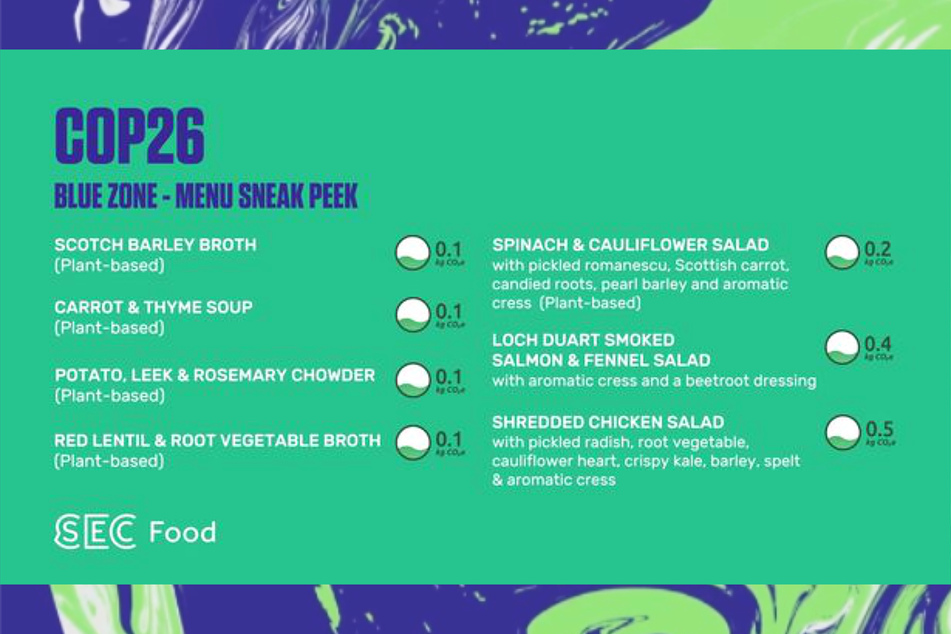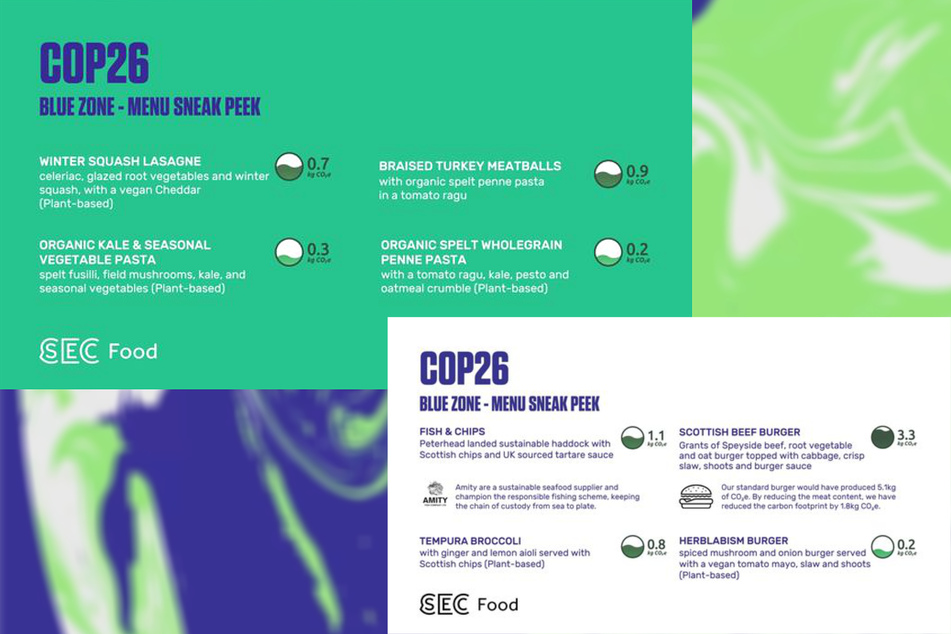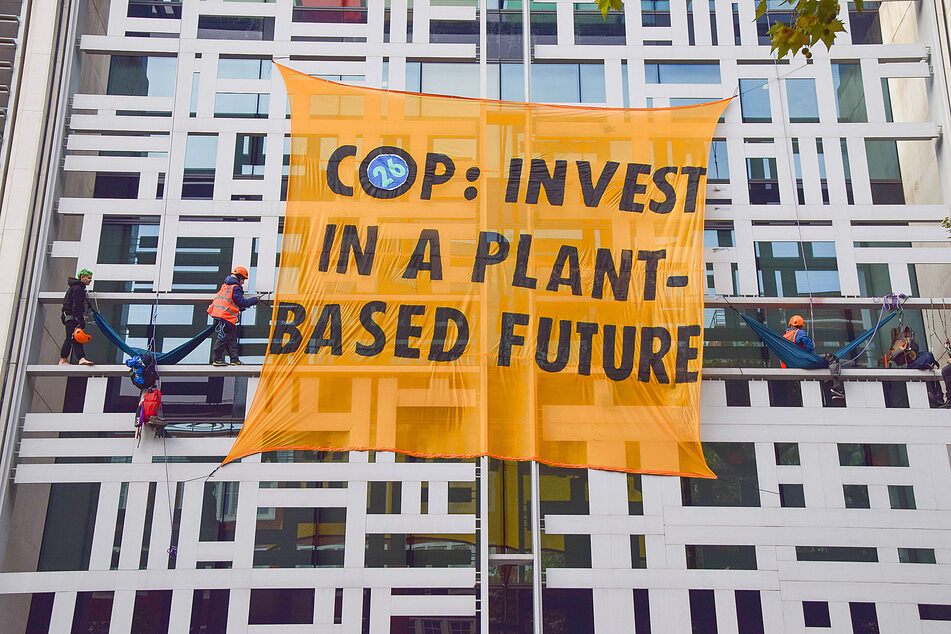COP26: Sustainable dishes on the menu are a sign of times to come
Glasgow, UK - Even world leaders meeting to fight climate change need to eat, and despite a few meat-based dishes, the chow at the upcoming make-or-break COP26 conference in Glasgow can set a good example for sustainable nutrition.

COP26 wants to be a benchmark for future events by making its food and drink options more sustainable.
Eighty percent of the food is locally sourced from Scotland and organizers focused on the right kind of products, like Edinburgh's Mara Seaweed "which is abundant and entirely sustainable and does not require fertilizer, fresh water or soil to grow."
One farming business providing food for the summit uses "wind turbines to power their cool storage, biomass to provide heating, and actively recycle the water they use."
The event's cups are reusable, which the conference organizers say will keep delegates from throwing away 250,000 single use containers.
However, some items on the menu are already under fire for not really being fitting the theme, particularly the farmed salmon from a producer with sea lice problems, as well as some red meat dishes.
Livestock contributes 14.5% of global carbon emissions from human activity, so serving it at a climate summit sticks out like a particularly sore thumb.

Less meat?

Food production in general is responsible for a quarter of global greenhouse gas emissions, but not all industries are made equal when it comes to CO2 emissions. So, what you eat makes a difference.
Reducing the amount of meat you eat is one way to make an impact on climate change, or even being more picky about which kind of meat you eat.
Switching from beef to chicken makes a huge difference, switching to no meat even more so. The same amount of chicken results in 88% less CO2 compared to beef.
Another option, especially if you love the taste of meat but want to make a change, are alternatives like Impossible Foods' plant-based chicken nuggets, which are completely meatless.
The COP26 menu is a good start to a subject that has to be part of the conversation at one of the most important summits of our time.
Cover photo: Collage: Images/COP26
